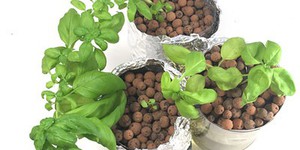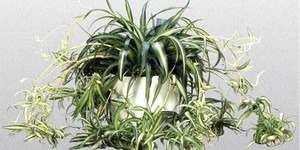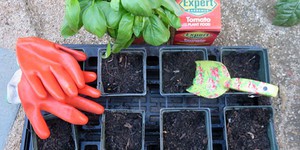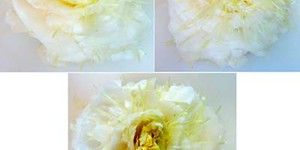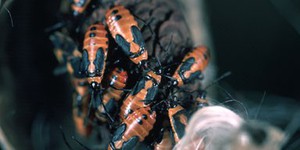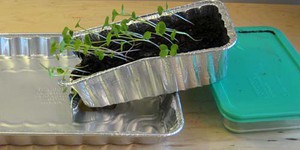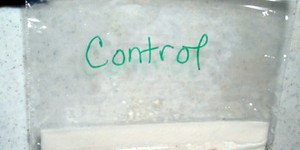Others Like “Home Sweet Biome: How Do Plants Grow in Different Environments?” (top 20 results)
|
What do plants need to grow? Most of us would answer that they need light, air, water, and soil. But by using a process called hydroponics, you can grow plants without soil! How does it work? Try this project and see for yourself!
Read more
Do you know what plants need to grow? Sure, they need soil, water, and sunshine.
Everyone knows that. But here's a secret: they also need nitrogen. Plants use nitrogen to make DNA in their cells and
the proteins that lead to healthy stems and leaves. The problem is, although the Earth's
atmosphere is made up of 78% nitrogen, the form of nitrogen found in the atmosphere cannot be used by plants.
So how do plants get their nitrogen? Either through nitrogen deposits in the soil, or through…
Read more
Did you know that apple trees do not "breed true"? This means that if you plant seeds from an apple, say a Granny Smith, you will get apple trees, but they will make apples that are actually different than Granny Smiths. So how do farmers produce new Granny Smith trees? They use a method called vegetative propagation. For instance, they may cut a branch off of a tree that grows Granny Smith apples and attach the branch onto a different tree trunk. This method of making new trees is called…
Read more
Plants need nitrogen to grow healthy stems and leaves. Although nitrogen is the most abundant element in the air we breathe, that form of nitrogen cannot be used by plants. Nitrogen contained in fertilizer, on the other hand, is readily taken up by plants. In this experiment, you will compare plants grown without nitrogen fertilizer to plants grown with nitrogen fertilizer.
Read more
Do you like to watch outdated science fiction and cheesy horror movies? Many fictional tales of cloned organisms have been created based upon the scientific method for cloning animals or plants. In the real world, the cloning of plants is a common method used in modern farming. How do you clone a plant?
In this science project you will get to find out by making your own cabbage clones!
Read more
Milkweed bugs, as their name suggests, have a close relationship with the milkweed plant. The plant produces an irritating, milky sap, and toxic compounds, but somehow the milkweed bug is unaffected by them. Instead, it concentrates chemicals from the sap in its body, acquiring an unsavory taste that, along with its bright coloration, protects it from predators. Given this close relationship, will the milkweed bug exhibit a color preference for egg-laying sites? This project is designed to find…
Read more
Soil erosion can cost the world billions of dollars every year by washing pollutants into our streams and rivers and by causing the loss of farmland. What can you do about this problem? Help save the world (and some money!) with nothing more than a few plants!
Read more
Mowing the lawn is hard work, especially on a warm day. Not only do you have to mow the grass, but you also have to dispose of the clippings. Some people add the clippings to a compost pile in their yard, which is a great idea. But did you know that some grasses can be used as a source of energy? In this energy science fair project, you will learn more about a type of energy called biomass energy. You will grow different kinds of grasses and see which type of grass gives you the most biomass,…
Read more
Hydrogen peroxide (often used as a disinfectant) has also been approved for use in pesticides. This science fair project investigates whether hydrogen peroxide has any effects on seed germination or on roots of plant cuttings.
Read more
Farmers face a variety of challenges in their efforts to grow crops. One of the chief challenges is the presence of unwanted plants (weeds) that compete with the crop plants for water, nutrients, and light. If the weeds are not suppressed, they can reduce or completely eliminate the amount of food derived from the crop at harvest. In this biotechnology and plant science fair project, you will simulate the competition between crop plants and weeds, and determine whether the use of an herbicide,…
Read more
|
Explore Our Science Videos
Paper Ball Run: 2022 Engineering Challenge
Paper Bridges STEM Activity
The First Cartoon: Make Your Own Thaumatrope!


